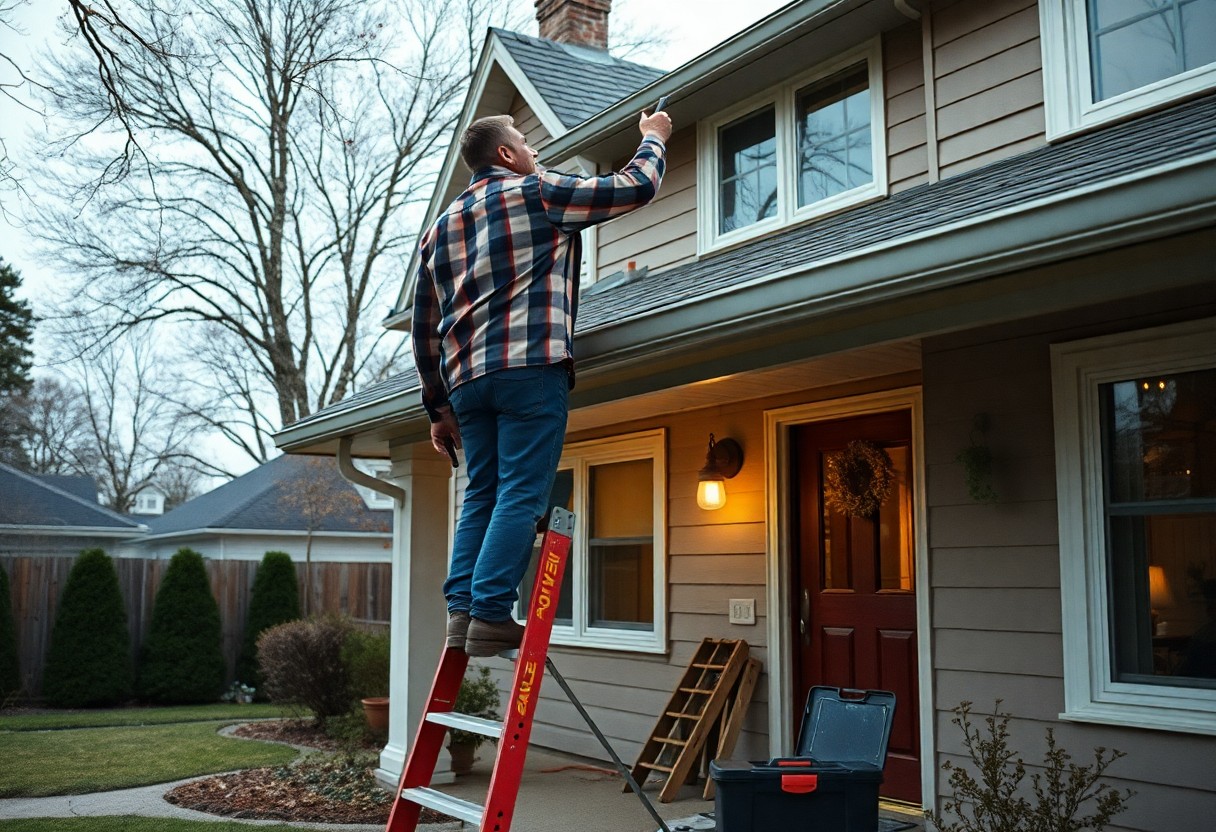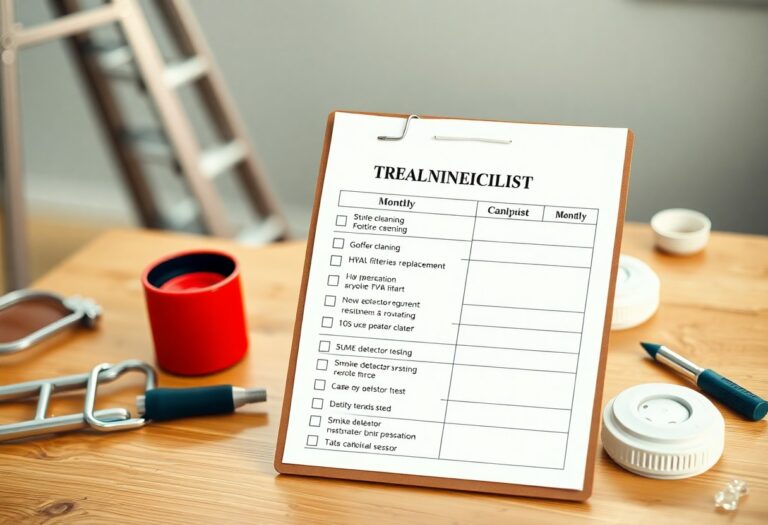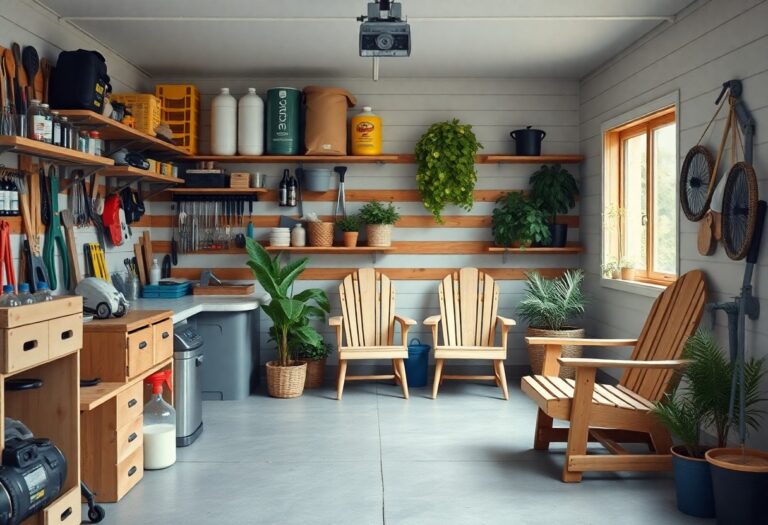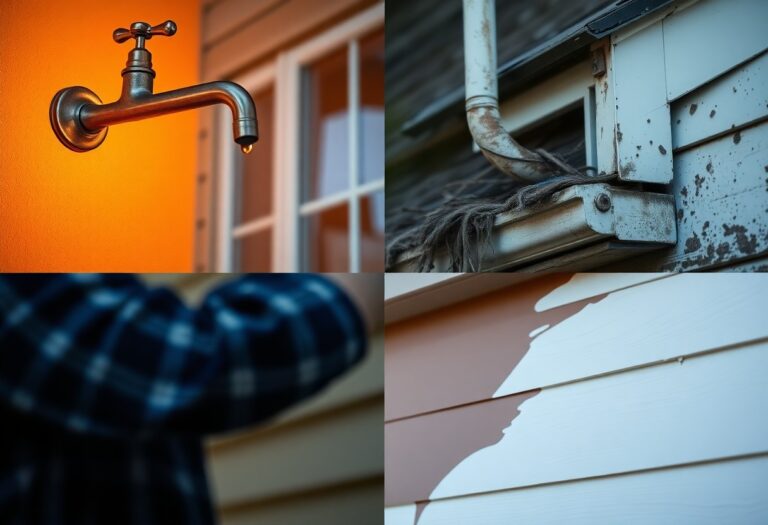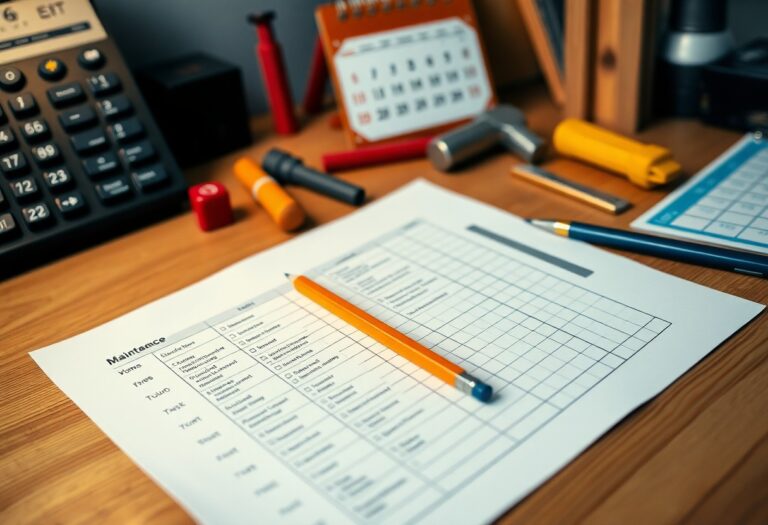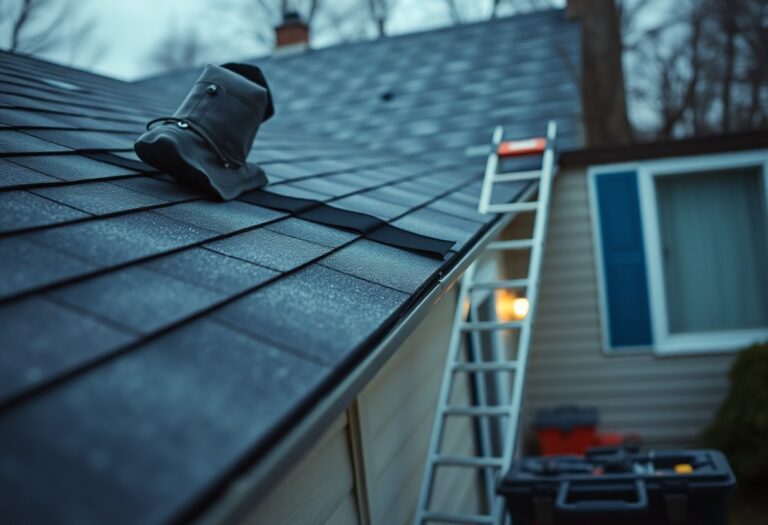Home Maintenance Tips for First-Time Homeowners – A Beginner’s Guide
Many first-time homeowners feel overwhelmed by the responsibilities that come with maintaining a home. This beginner’s guide is designed to help you confidently navigate imperative home maintenance tasks that will keep your property in great shape. Whether it’s seasonal upkeep or minor repairs, understanding these key areas will empower you to protect your investment and create a comfortable living environment. Read on for practical tips and valuable insights that will make your homeownership journey smoother and more manageable.
Types of Home Maintenance
While maintaining your home, it’s imperative to categorize the types of maintenance you’ll encounter. This helps ensure that nothing gets overlooked. Here’s a quick breakdown:
| Preventive Maintenance | Regular inspections and repairs to avoid bigger issues. |
| Corrective Maintenance | Repairs made to fix issues as they arise. |
| Emergency Maintenance | Immediate action for urgent repairs, like plumbing leaks. |
| Seasonal Maintenance | Tasks to perform specific to each season’s needs. |
| Cosmetic Maintenance | Enhancements for appearance, like painting and landscaping. |
Recognizing the different types will help you prioritize tasks effectively.
Seasonal Maintenance
Clearly, each season requires unique maintenance tasks to keep your home in optimal condition and protect your investment. Different seasons bring specific challenges and opportunities—spring cleaning, summer landscaping, fall preparation for winter, and winter weatherproofing—each plays an important role in your home’s upkeep.
Routine Upkeep
Maintenance involves regular tasks that should be on your checklist, ensuring everything functions smoothly throughout the year. Simple actions, like changing air filters, checking smoke alarms, and cleaning gutters, can prevent more significant issues down the line.
Plus, developing a schedule for routine upkeep not only keeps your home looking and feeling great but also helps you stay organized. By tackling these tasks consistently, you can identify potential problems early and address them before they escalate, saving time and money. Building this habit will lead to a well-maintained and comfortable living environment for you and your family.
Essential Tips for First-Time Homeowners
Any new homeowner should prioritize understanding the fundamentals of home maintenance. Here are some important tips to keep your home in tip-top shape:
- Regularly inspect your roof and gutters.
- Change air filters every few months.
- Know where your main water shutoff valve is located.
- Test smoke and carbon monoxide detectors monthly.
- Keep your landscaping neat to prevent pest infestations.
The more proactive you are, the more you can prevent major issues down the line.
Creating a Maintenance Schedule
Little habits can go a long way in home maintenance. Creating a maintenance schedule helps you stay organized and ensures that important tasks are not overlooked. Mark reminders for seasonal checks, such as cleaning gutters in the fall and servicing your HVAC before summer, to keep your home functioning efficiently.
Tools Every Homeowner Should Have
Should you invest in the right tools, you’ll find home maintenance tasks become simpler and more manageable. Essential tools for homeowners include a reliable multi-tool, a hammer, screwdrivers of various sizes, pliers, a wrench set, and a tape measure. Also consider a cordless drill and a level for any DIY projects.
This selection of tools serves as your trusty arsenal for tackling a variety of home repairs and improvements. For instance, a multi-tool can help you handle minor tasks like tightening screws or making quick adjustments, while a drill can assist with larger projects like assembling furniture or hanging shelves. With these importants on hand, you’ll find it easier to maintain and enhance your living space.
Step-by-Step Guide to Common Home Repairs
If you’re new to homeownership, handling repairs can feel daunting. However, with a systematic approach, you can tackle common issues confidently. The following table outlines necessary repairs and offers a brief overview of what each entails:
| Repair | What to Do |
|---|---|
| Fixing Leaks | Identify the source, turn off water, and apply necessary fixes. |
| Painting Walls | Prep surfaces, choose your paint, and apply using proper techniques. |
Fixing Leaks
To fix leaks, start by identifying the source of the problem. Common areas include faucets, pipes, and toilets. Once located, turn off the water supply to prevent further damage. Use plumber’s tape, sealants, or replace parts as necessary, and remember to test for any residual leaks once reassembled.
Painting Walls
On your journey to home improvement, painting walls is a rewarding task that can refresh any room. Before beginning, ensure you have all the necessary tools, including brushes, rollers, painter’s tape, and drop cloths. Clean and prepare the walls to ensure proper paint adhesion.
Another necessary aspect of painting is choosing the right paint for your space—consider the finish and color that best suits your decor. Start by applying primer if you’re making a significant color change or working with raw surfaces. Apply your chosen paint evenly and allow adequate drying time between coats for a professional finish.
Factors to Consider for Effective Maintenance
All homeowners should be aware of several important factors that influence the effectiveness of your home maintenance efforts:
- The age and condition of your home
- Your local climate
- Seasonal changes
- Your budget
The right considerations will help you establish a successful maintenance routine.
Home Age and Condition
Any home’s age and its current state significantly impact your maintenance approach. Older homes may require additional checks on plumbing, electrical systems, and roofing due to wear and tear, whereas newer homes may have fewer immediate concerns.
Local Climate Impacts
If you live in an area with extreme weather, your maintenance plan must account for these conditions. Factors like humidity, temperature fluctuations, and seasonal storms can heavily affect the longevity of your home’s structure and systems.
Local climate plays a pivotal role in determining how you maintain your home. For instance, if you reside in a region with heavy rainfall, it’s imperative to focus on gutter cleaning and roof inspections to prevent leaks and water damage. Conversely, in areas with harsh winters, you’ll need to prioritize insulation and heating system checks to ensure comfort and efficiency.
Pros and Cons of DIY vs. Hiring Professionals
Despite the thrill of taking on home projects, it’s imperative to weigh the pros and cons of DIY versus hiring professionals. While DIY can save you money, it may pose risks without proper skills. On the other hand, professionals provide expertise but at a higher cost. Below is a breakdown of the advantages and disadvantages:
| Pros | Cons |
|---|---|
| Cost-effective | May lack necessary skills |
| Satisfying to complete tasks yourself | Time-consuming |
| Flexibility in scheduling | Possible mistakes can lead to higher costs |
| Opportunity to learn new skills | Risk of injury |
| Complete control over the project | Quality may vary |
Benefits of DIY
Now, embracing DIY projects can bring a sense of accomplishment to your homeownership journey. Not only do you save money, but you also gain new skills and knowledge while personalizing your space to reflect your style. Completing projects on your own can enhance your confidence and lead to a deeper connection with your home, making it truly yours.
When to Call a Professional
Any time you encounter projects involving electrical work, plumbing, structural changes, or safety hazards, it’s advisable to call a professional. Tackling these tasks without the right skills can result in significant safety concerns or costly mistakes. Professionals are trained to handle complex issues and ensure that everything meets local building codes and standards.
With professionals, you can rest assured that the work will be done correctly and efficiently. They possess the experience and tools necessary to manage these demanding tasks, which can save you time and prevent issues down the line. Hiring someone may require a higher upfront investment, but the long-term benefits often outweigh the costs, providing peace of mind that your home is in safe hands.
Common Mistakes to Avoid
To ensure your home remains in good shape, it’s necessary to steer clear of common pitfalls that many first-time homeowners encounter. A proactive approach to maintenance can save you from costly repairs down the line and enhance your living experience. By being aware of these mistakes, you can create a well-maintained and comfortable environment for yourself and your family.
Neglecting Regular Inspections
Little do many first-time homeowners realize that regular inspections of your home can help catch issues before they escalate. By taking the time to inspect your roof, plumbing, and electrical systems periodically, you can identify potential concerns early on, allowing you to address them efficiently and affordably. This practice not only helps maintain the integrity of your home but also contributes to a safer living environment.
Ignoring Pest Control
Inspections for pests should be part of your ongoing home maintenance routine. Ignoring pest control can lead to infestations that compromise your home’s structure and create health hazards. By scheduling regular pest inspections and treatments, you can protect your home from damage and ensure a comfortable living space for you and your loved ones. Adequate preventive measures can save you time and money while preserving your home’s value.
Regular pest control not only keeps your property safe from damage but also improves your quality of life. Pests such as termites, rodents, and ants can cause significant harm if left unchecked, leading to expensive repairs and potential health risks for your family. Investing in pest prevention measures, like proper sealing of entry points and routine inspections, can provide peace of mind and safeguard your home from unwanted invaders.
Final Words
To wrap up, effectively maintaining your home as a first-time homeowner is crucial for protecting your investment and ensuring your living space remains comfortable. By staying organized and regular with tasks such as seasonal inspections, routine cleaning, and timely repairs, you can minimize unexpected issues. Establish a maintenance schedule that works for you and always be proactive in seeking help when needed. With these tips, you’ll develop confidence in managing your home and create a safe, inviting environment for yourself and your family.

